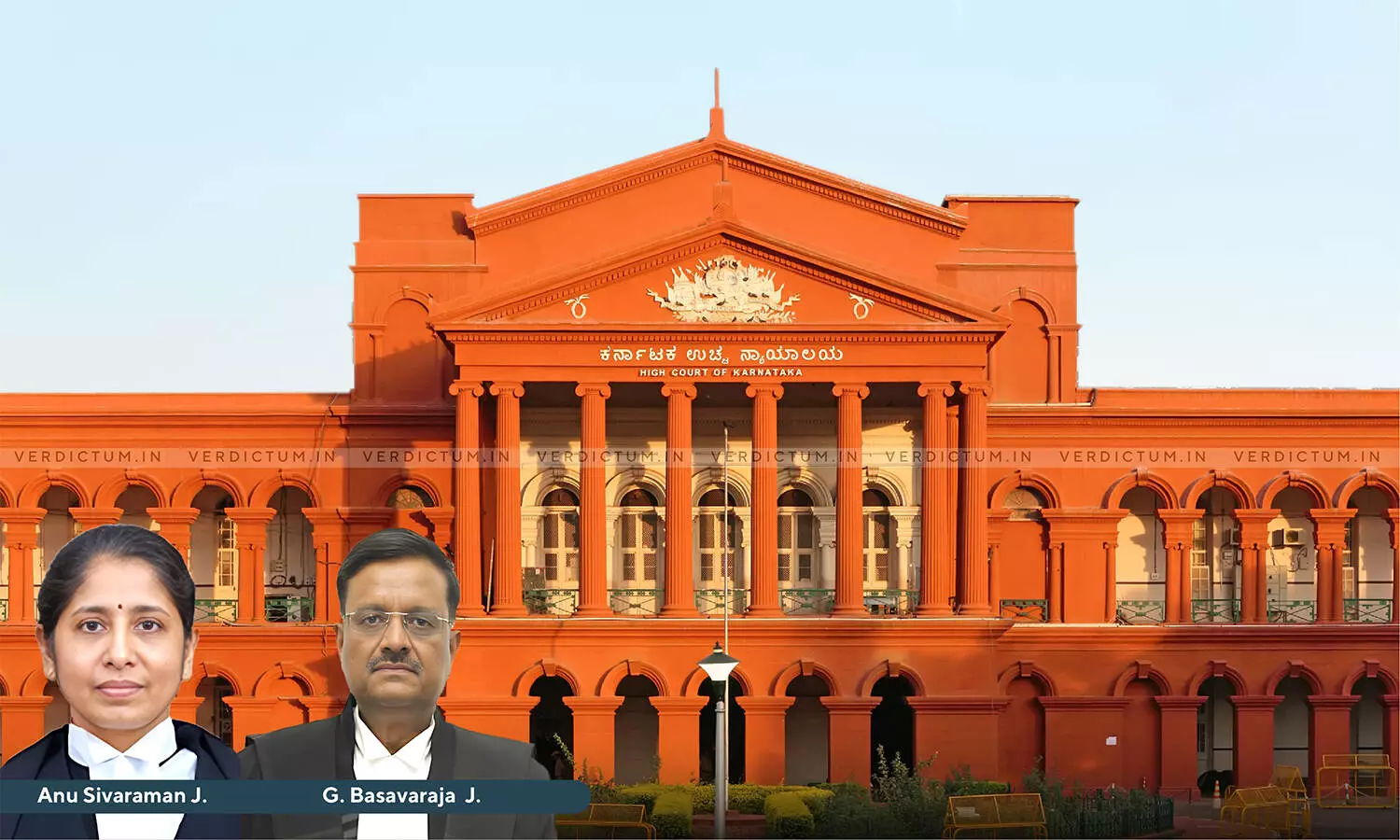
Whether Trade Union Registered Under State Govt Can Represent Workmen Before CGIT In A Dispute Referred For Adjudication?: Karnataka HC Answers
 |
|The Karnataka High Court observed that a Trade Union registered only under the State Government can represent the workmen before the Central Government Industrial Tribunal-cum-Labour Court (CGIT) in a dispute admittedly referred to the CGIT for adjudication.
The Court observed thus in a writ petition filed by Central Silk Board (CSB) Management, challenging the award passed by the CGIT.
A Division Bench comprising Justice Anu Sivaraman and Justice G. Basavaraja held, "The judgment in W.A.No.407/2007 dated 13.08.2007, which is also relied on by the petitioner specifically considered the question whether the writ petition by an unregistered Union is maintainable before the High Court and whether the Government was justified in refusing to refer a dispute and issuing endorsement under Section 12(5) of the Act. The Court held that an unregistered Union cannot maintain a writ petition under Article 226 of the Constitution of India. We find nothing in any of the authorities placed on record, which supports the contention of the petitioner that a Union registered only under the State Government could not have represented the workmen before the CGIT in a dispute admittedly referred to the CGIT for adjudication."
The Bench also held that once a reference is made by the Central Government finding that there is an industrial dispute in existence, there is nothing in the provisions of the Act or the Rules which provides that it is only a Trade Union registered under the Central Government that can maintain a dispute before the CGIT.
Advocate N.S. Narasimha Swamy appeared on behalf of the petitioner while Advocate V.S. Naik appeared on behalf of the respondents.
In this case, the Central Government exercising powers conferred under Section 2(a)(1)(d) read with Section 10 of the Industrial Disputes Act, 1947 (IDA), referred the following question for adjudication of the CGIT –
"Whether the demand of the Central Silk Board Employees Union for enhancement of retirement age from 55 years to 60 years for the time scale farm workers is legal and justified? If yes, to what relief the workmen are entitled to?"
After considering the contentions and the material placed on record, the CGIT issued an award holding that the demand of the CSB Employees Union for enhancement of retirement age from 55 years to 60 years for the time scale farm workers is legal and justified and that they are entitled to enhancement of their retirement age from 55 years to 60 years. Being aggrieved by this award, the CSB was before the High Court.
The High Court in the above regard, noted, “The decisions relied on by the petitioner also are not authority on the point that only a Central Government registered trade union can maintain a dispute before the CGIT. The decision relied on by the learned counsel for the petitioner specifically was with regard to the right of an unregistered association to approach either the Supreme Court under Article 32 of the Constitution of India or the High Court under Article 226 of the Constitution of India.”
The Court said that, neither Section 11 nor the power in the Central Government to frame Rules under Section 13(2)(xiv) of the Central Silk Board Act, 1948, to regulate the working conditions of the staff which may be employed by the Board and the pay and allowances, leave and other conditions of service of officers and other employees of the Board would restrain either the reference of a dispute with regard to the retirement age of Time Scale Farm Workers under the Board nor the jurisdiction of the Industrial Tribunal to consider the dispute and pass an award thereon.
“The Act being a beneficial piece of legislation and the Tribunal being a specialised body, specifically empowered to consider specific disputes between management and workmen, we are of the opinion that the award of the Tribunal cannot be lightly interfered with”, it further emphasised.
The Court, therefore, concluded that there is no patent illegality in the award which requires interference via extraordinary jurisdiction and that the petitioner cannot succeed in the writ petition.
Accordingly, the High Court dismissed the writ petition.
Cause Title- Central Silk Board v. The Central Silk Board Employees Union & Anr.